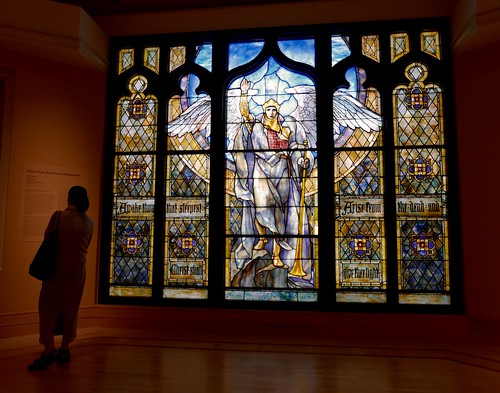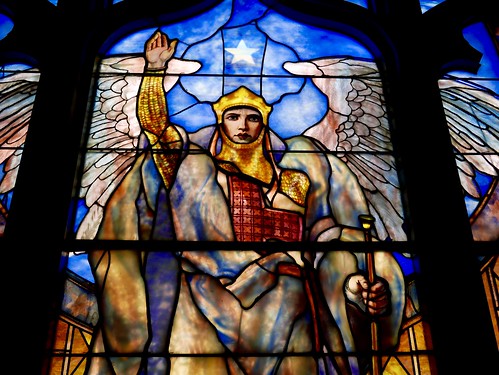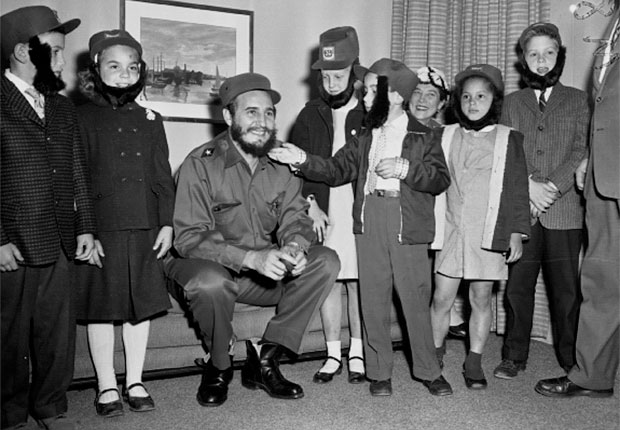... I want to state my belief that the most beautiful First Lady was Frances Cleveland (and what a strange romance!).
Noticed while watching this survey of First Ladies:
Strewed over with hurts since 2004
... I want to state my belief that the most beautiful First Lady was Frances Cleveland (and what a strange romance!).
Noticed while watching this survey of First Ladies:
The north-central region of Oklahoma became part of the United States with the Louisiana Purchase in 1803. In 1832, author and traveler Washington Irving provided the first recorded description of the area around Stillwater in his book A Tour on the Prairies. He wrote of “a glorious prairie spreading out beneath the golden beams of an autumnal sun. The deep and frequent traces of buffalo, showed it to be a one of their favorite grazing grounds.”
According to one legend, local Native American tribes — Ponca, Kiowa, Osage, Pawnee — called the creek “Still Water” because the water was always still. A second legend states that cattlemen driving herds from Texas to railways back east always found water "still there". A third legend holds that David L. Payne walked up to Stillwater Creek and said, “This town should be named Still Water”. Members of the board thought he was crazy, but the name stuck.I like that Washington Irving showed up. And the term "boomer colony."
Stillwater Creek received its official name in 1884 when William L. Couch established his “boomer colony” on its banks. While the creek itself was tranquil, the next few years saw turmoil as pioneers sought free, fertile land and soldiers held them off while complicated legal issues and land titles with Creek and Seminole tribes were hashed out....
"Boomers" is the name given to settlers in the Southern United States who attempted to enter the Unassigned Lands in what is now the state of Oklahoma in 1879, prior to President Grover Cleveland opening them to settlement by signing the Indian Appropriations Act of 1889 on March 2, 1889. The Sooners, settlers who entered the Unassigned Lands just prior to the April 22, 1889 official opening, were preceded by Boomers by a decade.
The term "Boomer," in relation to Oklahoma, refers to participants in the "Boomer Movement." These participants were white settlers who believed the Unassigned Lands were public property and open to anyone for settlement, not just Indian tribes. Their belief was based on a clause in the Homestead Act of 1862 which said that any settler could claim 160 acres (0.65 km2; 0.25 sq mi) of "public land." Some Boomers entered the Unassigned Lands and were removed more than once by the United States Army....


[Harrison] commanded the brigade at the battles of Resaca, Cassville, New Hope Church, Lost Mountain, Kennesaw Mountain, Marietta, Peachtree Creek and Atlanta. When Sherman's main force began its March to the Sea, Harrison's brigade was transferred to the District of Etowah and participated in the Battle of Nashville.Harrison was President from 1889 to 1893. He had the unique experience of defeating a President who was seeking re-election and having that man defeat him when he sought re-election. (The other President was Grover Cleveland, who is considered the 22nd and 24th President of the United States.) Harrison was also unique as the only President whose grandfather was President.
According to Metro Weekly critic Chris Gerard, "Fast Car" tells a grittily realistic story of a working poor woman trying to escape the cycle of poverty, set to folk rock music. The song's arrangement was described by Orlando Sentinel writer Thom Duffy as "subtle folk-rock," while Billboard magazine's Gary Trust deemed the record a "folk/pop" song. Dave Marsh said it was perhaps an "optimistic folk-rock narrative," whose characters are in a homeless shelter. American culture critic Jim Cullen believed that with songs like "Fast Car", Chapman brought a uniquely Black and feminist perspective to acoustic folk-rock's generally White, middle-class audience.When I hear the song, which I've heard way too many times over the last 30 years, I think of the well-off white people who love themselves too much for loving it. So I delighted at Hannah's annoyance at Marnie's loving the song. And I was crushed when absolutely the last thing that happened in the series was Hannah — as she got her baby to breastfeed at last — manifesting her long-awaited ascendance into adulthood by softly singing "Fast Car." My favorite thing about the episode — Hannah's irritation at Marnie's lame self-love at loving "Fast Car" — got ruined.
The two men lived together in a Washington boardinghouse for 10 years from 1834 until King's departure for France in 1844. King referred to the relationship as a "communion", and the two attended social functions together.... Andrew Jackson called them "Miss Nancy" and "Aunt Fancy" (the former being a 19th-century euphemism for an effeminate man), while Aaron V. Brown referred to King as Buchanan's "better half"....Cleveland is more recent. President from 1885 to 1889 and 1893 to 1897, he was unmarried when first elected, but, after using his sister in the First Lady role for the first 2 years, he got married to a woman who was only 21. He was 49 and President of the United States. How's that for a power imbalance in marriage? The woman, Frances Folsom, was the daughter of his friend Oscar Folsom:
In May 1844, Buchanan wrote to Cornelia Roosevelt, "I am now 'solitary and alone', having no companion in the house with me. I have gone a wooing to several gentlemen, but have not succeeded with any one of them. I feel that it is not good for man to be alone, and [I] should not be astonished to find myself married to some old maid who can nurse me when I am sick, provide good dinners for me when I am well, and not expect from me any very ardent or romantic affection."
This marriage was unusual, since Cleveland was the executor of Oscar Folsom's estate and had supervised Frances' upbringing after her father's death; nevertheless, the public took no exception to the match.Just imagine how the media would react today.
Constant companion,(& friend in old age) who will feel interested in one,— object to be beloved & played with.— —better than a dog anyhow.— Home, & someone to take care of house— Charms of music & female chit-chat.— These things good for one’s health.— but terrible loss of time. —Better than a dog anyhow.... Lindsey could just get a rotating dog....
MEADE: "'Mr. Tambourine Man'... just to dance beneath the naked sky..."In "Motorpsycho Nightmare," Bob Dylan is just trying to get some sleep — no sign that he's sleeping naked — when Rita — "Lookin’ just like Tony Perkins" (i.e., the murderer in "Psycho") importunes him to take a shower. He's freaked out: "Oh, no! no! I’ve been through this [movie] before." Afraid of getting knifed to death, but unwilling to run off unless her father (the farmer) throws him out (because he promised the farmer he'd milk the cows in the morning), his sees his only option as saying "something to strike him very weird." What he says is: "I like Fidel Castro and his beard."
ME: "That's 'diamond sky.'"
MEADE: "The one where the farmer is chasing him out of his house."
ME: "'Motorpsycho Nightmare?' No."

[Y]ou could not wear any kind of mustache after [WWII], because, running from Hitler, you might run into Stalin. Hitler plus Stalin ended the career of the mustache in Western political life. Before the war, all kinds of American presidents wore a mustache and/or beard. You had John Quincy Adams, with his muttonchops...Are we going to decide who deserves out trust based on they look? Come on, Abe. Lose the beard. Okay.
You had Abe Lincoln, whose facial hair...
... like his politics, was the opposite of Hitler's: beard full, lip bare. You had James Garfield, who had the sort of vast rabbinical beard into which whole pages of legislation could vanish.
You had Rutherford B. Hayes...
Grover Cleveland...
... and Teddy Roosevelt, whose asthma and elephant gun were just a frame for his mustache.
You had William Howard Taft — the man wore a Walrus!
After the war, the few American politicians who still wore a mustache were those who had made their name before Hitler and so had been grandfathered in. Like Thomas Dewey.
Dewey was Eliot Spitzer. He was a prosecutor in New York in the 1930s (and later governor), the only guy with the guts to take on the Mob. For Dewey, the rise of Hitler was a fashion disaster. Because Dewey wore a neat little mustache. Dewey ran for president twice — losing to F.D.R., losing to Truman. In my opinion, without the mustache, the headline in the Chicago Daily Tribune (Dewey Defeats Truman) turns true. One of the few prominent American politicians to wear facial hair in recent memory is Al Gore, who grew a Grizzly Adams beard after he lost to George Bush, in 2000. The appearance of this beard was taken to mean either (1) Gore would never again run for office, or (2) Gore had gone completely mental.
The decision to grow a mustache or a beard is all by itself reason to keep a man away from the nuclear trigger.


Webb's trick is to adapt this history of white folk to the categories of contemporary multiculturalism. He turns liberalism's assumptions of ethnic grievance and victimization to the service of people who, in more conventional accounts, have themselves been seen as the victimizers. Webb rails against "the wielders of cultural power such as Hollywood, academia, and major media [who] chip away at the core principles that have defined the traditions and history of [Scots-Irish] people." And now his people are fighting back. "In a society obsessed with multicultural jealousies, those who cannot articulate their ethnic origins are doomed to a form of social and political isolation. My culture needs to rediscover itself, and in doing so to regain its power to shape the direction of America." Using diversity dogma to put the white man back on top--it is a marvelous inversion...Yes... but isn't that a good thing? I find myself rooting for Webb. I want to see what he will do to the Democrats, who are so deeply invested right now in what he might do for them.
[T]he use of multiculturalism to advance the ethnic interests of white people, and the use of warrior rhetoric to discredit the Bush administration's war--might be extremely valuable to Democrats, if they knew what they were doing.
But that's never a safe bet. Webb's right-wing populism and the liberalism of today's Democratic party make for an abrasive fit...